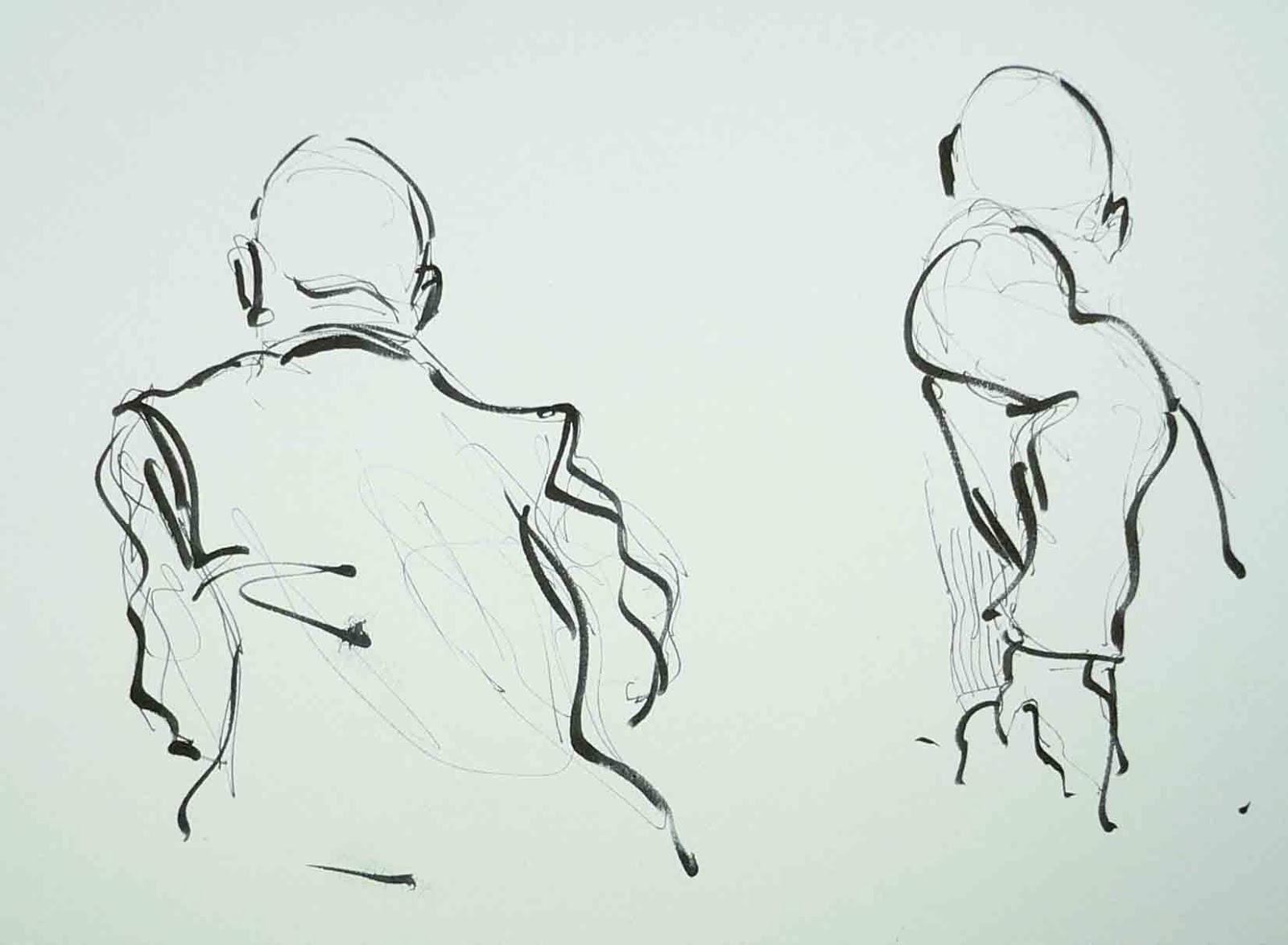At root, the current debate about lawyer pay under legal aid is one of sustainability. Sustainable development is activity which meets the needs of the present without compromising the ability of future generations to meet their own need.
- The sketch (Robin Allen QC) is by Isobel Williams (www.izzybody.blogspot.co.uk). Isobel will be talking about her work in the Supreme Court on Friday, October 18, 2013 from 6:00 PM at Birbeck College. Click HERE to book.
For the government, it is not sustainable to carry on paying criminal lawyers at the present rate with an ever-escalating legal aid bill. Unless remuneration is reduced, the government will not be able to go on funding legal aid for the long term – like the machete knife swiped through other areas of legal aid, crime may be similarly decimated in the future. By this line, prospective defendants in the criminal justice system will be denied the legal aid on offer now because of the greedy lawyers who will not accept the financial reality of the austerity measures that all (barring those in the government or banking sector) must bow down to.
For legal aid lawyers, it is not sustainable for them to take a 17.5% pay cut when they were already struggling to make ends meet. If the government insist on imposing such swingeing cuts, not only will law students be put off entering crime and the most able practitioners leave for other areas of the law, but hundreds of practices will close down creating advice deserts. As a result, lawyers claiming that they cannot (or will not) work for the fees on offer mean that tomorrow’s citizens accused or suspected of crimes will not have a choice of representation, could be left with the least talented rump of a profession or may even have to defend themselves.
As such, this seems to be an argument about economic sustainability. Both sides claim that the other is compromising future generations, shooting down suggestions that their opponents’ propositions offer sustainable business models.
Losing the argument
A fair result, then, would be one which finds some compromise between the two claims and balances the competing demands of the government and the lawyers. This seems unlikely to happen as, despite talk of a strike by the legal profession, the government seem determined not to back down (again) over their latest demands.
The deal that the Law Society has struck to hold back the threat of tendering seems to firmly place the ball in the government’s court. Lawyers look set to lose the debate over economic sustainability.
In the light of this possible defeat, the present situation would be better reframed in the language of social sustainability. Social sustainability occurs when formal and informal processes, systems structures and relationships actively support the capacity of current and future generations to create liveable communities. Socially sustainable communities are equitable, democratic and provide a high quality of life. Indeed, an often overlooked aspect of sustainability is the need for social justice; a community can only prosper if its members feel they are treated fairly and proportionately under the law.
The measure of a society is how it treats its most vulnerable members; a community that aspires to be sustainable should require that all citizens are treated with respect as human beings.
The justice system is supposed to serve and, essentially, acts to preserve the wider community but this cannot happen if a significant subsection of society is disenfranchised. Those sneeringly dismissed as the criminal classes (but really, any ordinary person under suspicion of criminal activity) risk being cut off from mainstream society if they do not receive procedural justice.
To achieve this access to justice, individuals who find themselves implicated in the justice system require access to a lawyer. The criminal process is an alien and intimidating self-referential system, wherein the lay person requires a lawyer to guide them through. The average citizen, then, is dependent on lawyers – defendants become clients and must put their faith in the lawyers. The lawyer must practice active defence, giving their all for a client.
The research conducted for Legal Aid Lawyers and the Quest for Justice shows that lawyers were not consistently able to offer this service under the existing legal aid regime. Lawyers felt compelled to spend as little time as possible on cases, came to resent those they represented and routinely pushed clients to plead guilty in order that the fees received would reflect that their firms demanded.
In short, the lawyers felt stretched to the limit financially, meaning that, to provide any service at all, they had to accept delivering one far lower than they (or the client) would like. To a large extent, legal aid funding had contributed to rendering lawyers’ typical practice as passive defence.
The findings of this study suggest that, assuming there are still enough lawyers in practice to serve defendants up and down the country, the service these lawyers feel able to provide will be of an even lesser quality. It is entirely possible that the only remaining model of practice will be the sausage factory – firms that process clients as if they were off-cuts of meat moving down a production line.
The sole intention of firm would be to speedily push clients through with as little effort as possible; they would provide a standardised service, with no time to get to know clients, to listen to their stories, to make them feel as though they had someone on their side –essential roles that lawyers should perform, every bit as pertinent as the result in the experience of many clients.
Whether the reduced quantity of defendants with the ability to call upon lawyers or the reduced quality of service provided, these cuts will seriously challenge the prospect of achieving access to justice in our criminal system. It is imperative that this be understood as a matter of social rather than economic sustainability as the potential effect of the changes are far larger than hitting the bank balances of a cadre of highly trained professionals – who, it must be acknowledged, hold generally desirable and readily transferable skills. The consequence is that society effectively condones turning its back on a significant element of the community – abandoning the vulnerable at the bottom of society who may already lack qualifications and jobs.
Ultimately, society cannot sustain a system of law whereby those who can afford to pay for it can attain justice, whereas an increasing number are denied it. There is, in those circumstances, no community at all. The debate around legal aid funding is about far more than money, it is about society.








